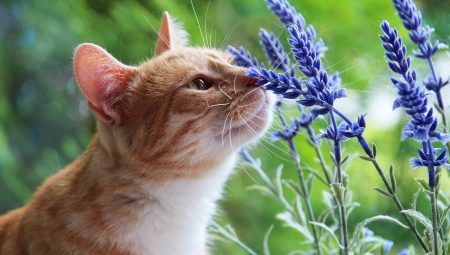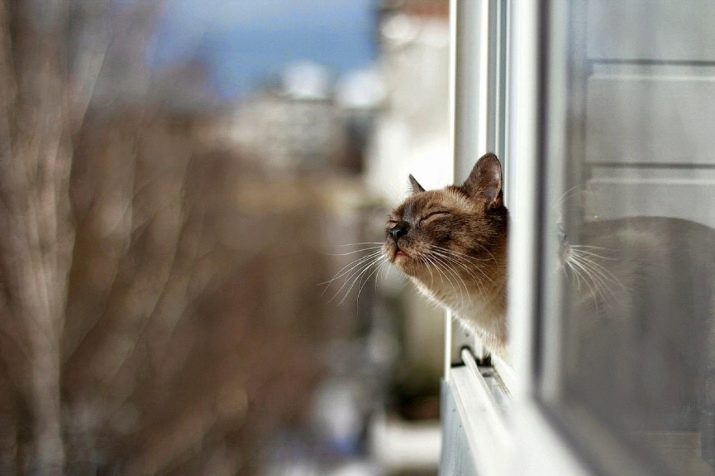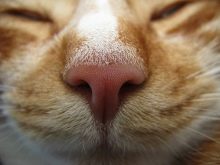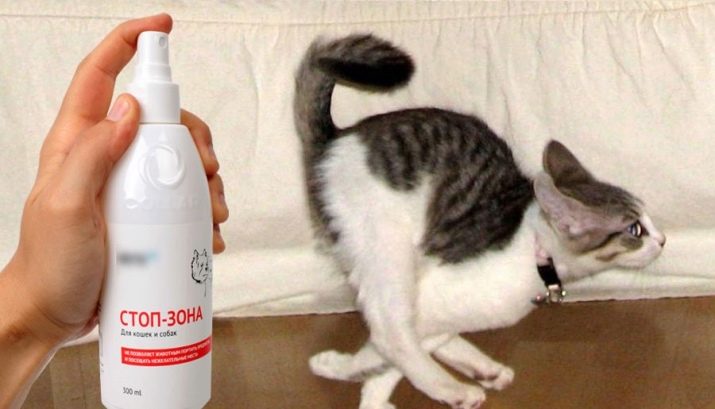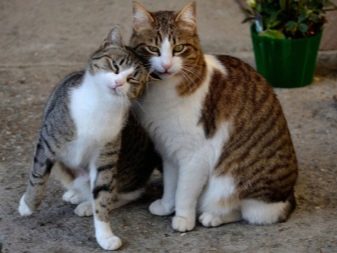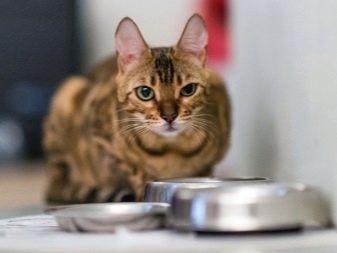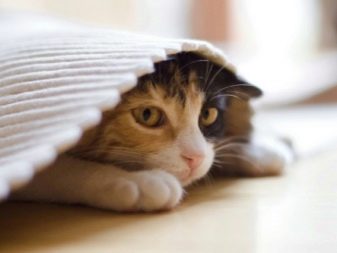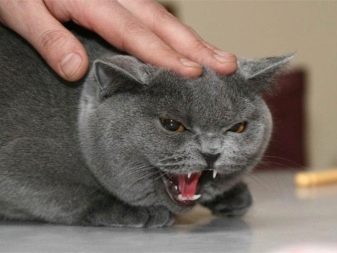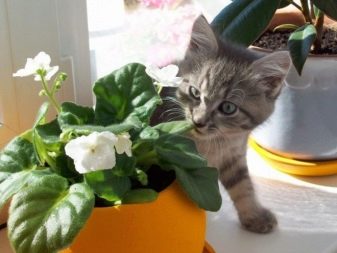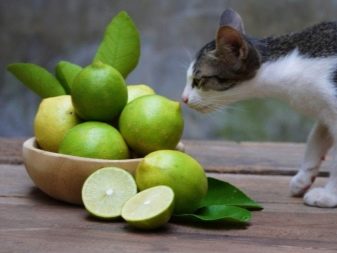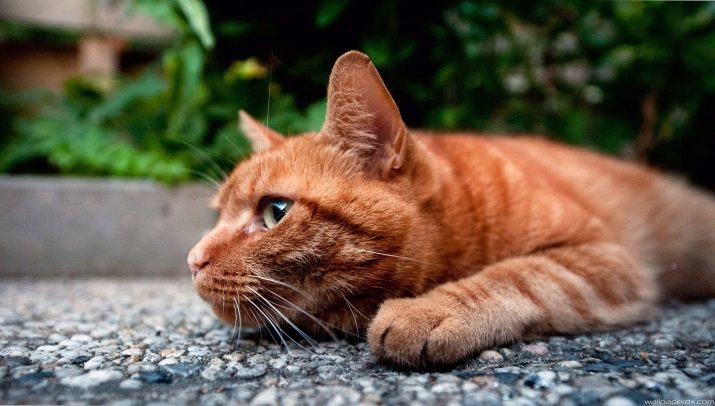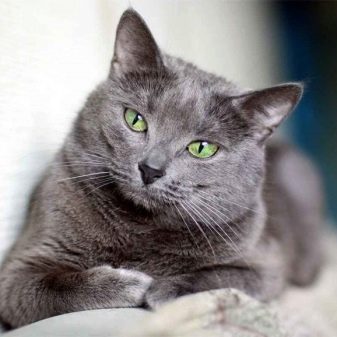Pets that are daily with a person should feel his care and love. A lot of people start cats at home, because they want to have a tender little animal, which will always be there. In order for cohabitation to be pleasant for both parties, it is important to prepare for the appearance of the cat, to create a place for it to play and rest, and also to exclude everything that may have an unpleasant smell that will irritate the animal. It is important to know what exactly one or another breed of cats does not like or to be able to determine what does not suit a particular animal.
How do unpleasant smells affect cats?
Like people, cats have their own preferences regarding favorite and unloved smells. The first cause positive emotions and give pleasant sensations, the second, on the contrary, unnerve the cat and negatively affect its behavior.
Representatives of the cat family have a very well-developed sense of smell and smell well at a sufficiently large distance.
Already from birth, these animals first of all begin to distinguish what is near them precisely because of the nose, and only after that the rest of the systems develop.
Cats have several favorite smells: this is a secret that human sweat glands secrete, which resemble feline pheromones during the mating period, as well as valerian aroma. The presence of these odors does not interfere with the owner and the pet, but there are also opposite flavors that the animal will not be delighted with.. If the cat suddenly starts to behave inappropriately, for no apparent reason, it is worth checking whether there is in the room what will smell bad for a furry beast. Among the most unpleasant flavors can distinguish plants, fruits, herbs and tinctures made on their basis. Cats do not like the aroma of strong alcohol, which will scare away from the place where people leave it.
To be aware of those fragrances that are not to the cat's liking is necessary in order to influence the pet's disobedience caused by whims, and not by some valid reasons. To wean the cat to go to the toilet in the wrong place, you can rub this area with some essence that will scare away your pet, and leave a few drops of valerian in the tray in order to attract him to cope with the need in the right place.
Based on this knowledge, special sprays have been created that can protect furniture and other unsuitable places for cat litter.
If the usual measures to combat disobedience do not help, then the chemical will work flawlessly. The smell of this remedy is very sharp and bitter, and in cats that feel it, the reaction begins in the form of a strong salivation that causes discomfort in the domestic animal. The advantage of the spray is that it helps to neutralize the smell of urine, and the normal odor is restored in the room.
To determine what exactly does not like the sense of smell of a pet, you can conduct experiments, giving him to smell different foods, spices, fruits, vegetables and objects that have a certain flavor. A good owner is engaged in raising his cat, teaching him not only the mode of the day and the place to go to the toilet, but also other techniques. The ability to influence the animal and quickly correct its behavior allows you to get a pet that will please its owner and live with him in absolute harmony.
These or other smells that cat catches nose, can affect him in different ways:
- strengthen or reduce sexual desire;
- increase or suppress appetite;
- activate or muffle the instincts of the animal.
The use of strong flavors should be justified and should not harm the health of the pet. Too frequent behavioral training sessions that involve a cat's nose can harm an animal, causing him to have nervous system disorders, problems with sleep and appetite. If you find at least some of the problems, it is worth to postpone training and try other methods.
Most unloved scents
Cats have a well-developed sense of smell, so the presence of any strong odors will be unacceptable for them. Most of all pets do not like citrus, because, in addition to the pronounced smell, they have a specific fruity aroma.
That is why all the aromatic oils based on these tropical fruits are also disgusting to your pet.
There are animals that have radically different olfactory features, and they like lemons with oranges, the smell of tobacco and similar options, so you need to watch the beast to find out what it is like and what frightens and unnerves it.
Among the most disliked scents are the following.
- Citrus - Lemon, orange, grapefruit, which can be used to wean the cat from a specific place or re-education. You can use citrus juice or leave a crust of these fruits in a problematic place, which will cause the cat to stop visiting this area.
- Onion and garlic - use any of the options in cut or rubbed form to maximize its smell. The cat will immediately sense something amiss and stop visiting the site that the owner has marked. The effect will be quick, but there is also an important drawback in the form of a strong odor in the room, which the owner may not like.
- Vinegar - is a very active substance that strongly affects the cat. Apply vinegar can be both diluted and in natural form. It is important not to overdo it with the quantity, because the cat will hear the scent even when the owner already has time to forget that he used it.
- Essential oils - they are used by humans to activate certain body systems, and on the cat they have the opposite, inhibitory effect. Just a few drops will be enough to make the cat smell unpleasant for him.
- Oil rue - A very strong agent that can cause dermatitis in cats, therefore it is important to use it carefully and in small doses so as not to harm the pet.
- Various seasonings - all the varieties of pepper, rosemary, thyme and cloves, which are so loved by man, are very bad for cats. If you often use these spices, you can cause the cat to cough and sneeze, aggravating his health.
All strongly smelling agents affect cats in different ways:
- cause a strong feeling of disgust;
- cause anxiety and stress;
- the pet has a sense of fear.
In each particular situation, it is necessary to carefully choose the means to get the right effect from its use. It is extremely important to use any odors in moderation and a short period, because cats hear the presence of an unpleasant smell for a long time, after a person stops to catch it.
How to use for scaring?
The need to use unpleasant smells for cats against them is also due to There are several reasons, including:
- going to the toilet in the wrong place;
- excessive interest in indoor flowers with possible negative consequences for them;
- increased interest in human food;
- “Occupation” of a particular territory with attacks on those who enter it or claim it.
To get rid of the unpleasant smell of urine, which remains in the room after going to the toilet in the wrong place for this, you can use the following tools.
- Vodka - it wipes all surfaces, which allows you to quickly eliminate the unpleasant feline smell, but another problem arises - the presence of persistent alcohol aroma, which can be removed only by prolonged ventilation.
- Potassium permanganate solution - this tool should be concentrated enough to rid the house of an unpleasant odor, but if the crystals are not completely dissolved in water, stains will remain from the substance, especially on fabric surfaces.
- Lemon juice - You can cook it from water and lemon or dilute the powder composition. This tool helps to remove unwanted odor and prevents repeated tricks of a furry animal in the same place.
- Vinegar solution - dilute with water in a ratio of 1: 3 and wipe hard surfaces. If you need to apply to the fabric, it is better to use a sprayer and remove excess moisture using paper napkins or towels.
- Soda - To get rid of the smell of urine completely, you need to sprinkle the place of cat tricks with soda and fill it with hydrogen peroxide, leaving it for some time. You can apply this procedure at night, then wipe the polluted area with high quality. It is undesirable to use this option on fabric surfaces, as stains remain from the product.
In the event that pets began to climb on the table or walk around the window with potted flowers, it is necessary to immediately take steps to stop such behavior. In the case of flowers, you can lay out on the windowsill orange skin or add zest to the ground. A good deterrent would be the use of feces of feline foxes and coyotes. If we are talking about the table, then you can use perfumes or essential oils, which are processed surface. In addition, you can leave the wetted sponge on the surface.
Choosing one or another version of the fight with the cat's disobedience, you should initially try all harmless methods of influence and only after identifying their helplessness, try aromatherapy, which will cause strong negative reactions of the animal.
In some cases, it is possible to teach the pet to behave correctly, and in some it is the opposite effect, as the cat develops panic attacks and other disorders of consciousness that can harm others.
Another problematic situation that summer residents may encounter, or those who have a kitchen garden, is the excessive interest of their cat or other animals to the land. In feline gardens, the association with the tray, so they can handle their need there, doing it often, which is unlikely to please the owner. To cope with such a problem, you can use several tactics.
- Fertilize and moisten the territory of the garden, that will discourage the cats' desire to travel along it, and even less to go to the toilet there, because they are clean animals and will not climb into the dirt.
- It is worth exploring the area for places through which cats penetrate the garden and eliminate them. If they are not found, you should make a small ravine near the fence and fill it with gravel, which cats do not like very much.
- If you can’t fight animals, it is possible to allocate for them a certain area where they will spend time without spoiling the harvest on the rest of the beds. To achieve this result, it is worthwhile to fence off a small area, cover it with sand and irrigate it with a small amount of valerian, which immediately attracts animals and distracts from the rest of the territory.
- To scare away unwanted guests, You can plant those plants that produce an unpleasant and sharp flavor. This is bitter pepper or coleus doggy.
Any struggle with tricks should be moderate, without kinking and harm to animals, so you should be very careful in choosing the means to scare the cats in each case.
Precautionary measures
Before you begin educational activities to wean the cat from some bad habit, you should think carefully about the choice of method of exposure. The age of the animal, its gender, character and behavior - all this should be considered when choosing. Initially, it is worthwhile to apply the softest tactics and look at the behavior of the animal. For some pets, even such restrictions will be global, and they will stop being naughty, while others will require much more serious options.
If it was decided to deal with the wrong behavior with the help of strong odors, you need to make sure that the cat is completely healthy and does not have allergic reactions to the specific flavor that is selected for use.
The second, equally important factor is the health of the host. Do not forget that a person may also become allergic to sharp odors, and instead of training a pet, you can seriously spoil your own health.
If a means of action acceptable to all is found, it is necessary to begin its use from the smallest dosages and leave for a short time, after which clean and carry out a high-quality wet cleaning. The use of odors does not bring satisfaction to the animal, it irritates it and causes discomfort, so it is not worthwhile to torment your pet for a long time.
As soon as progress is made in learning, it is worth stopping the use of aromatics and praise your pet for good behavior. If the negative situation will be repeated, it is worth repeating the method until the moment when it starts to bring positive results. In the event that a pet has any signs of allergy or abnormal behavior, any experiments should stop and show it to the veterinarian.
About what smells affect cats more effectively, learn from the video.
